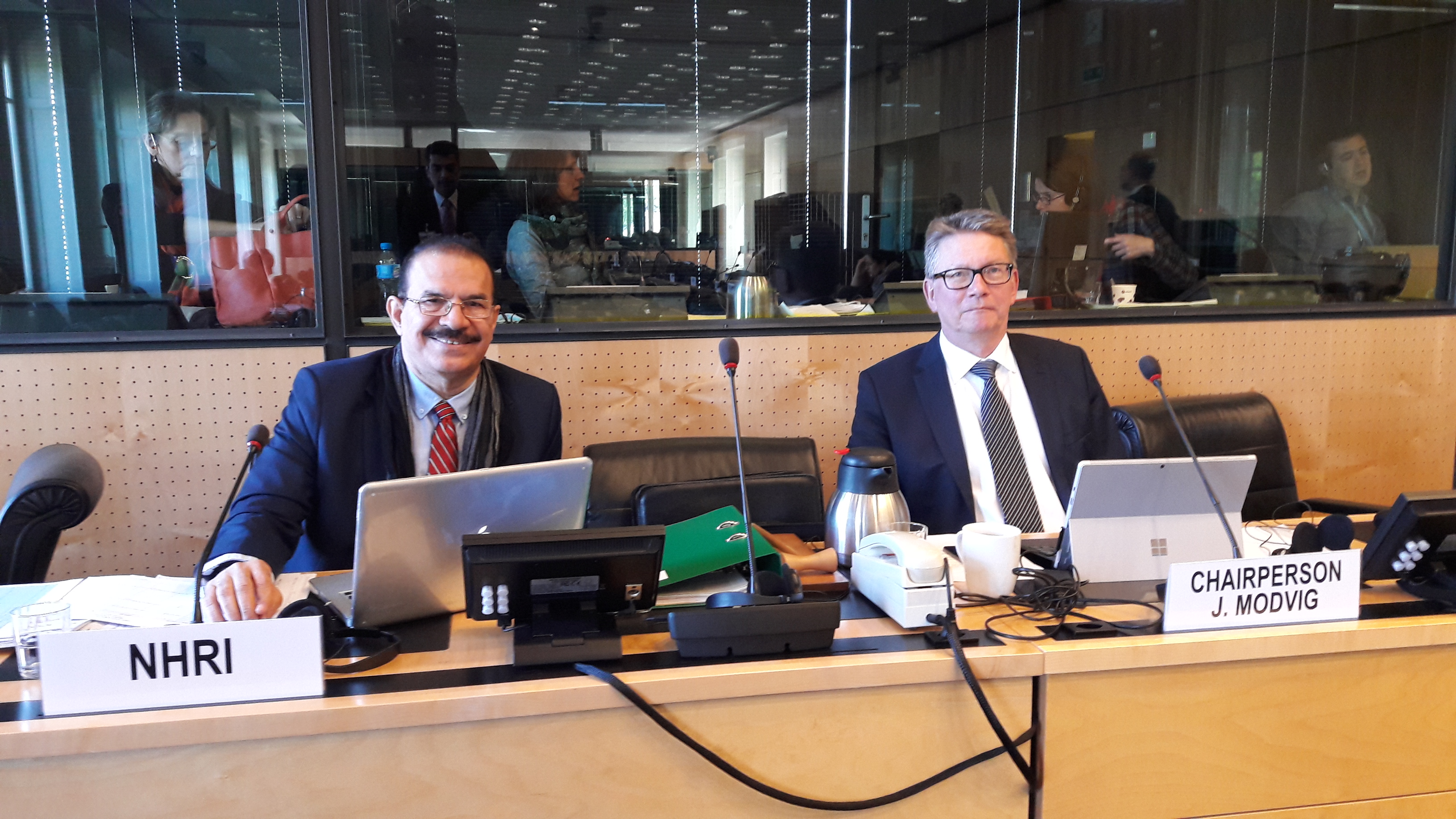NIHR Participates in the Special Meeting with the Committee against Torture in Geneva

HE Mr. Abdullah Al-Derazi, NIHR’s Vice Chairperson, and Counsellor-at-law, NIHR’s Assistant Secretary-General, participated in the Committee against Torture (CAT)’s meeting at its 60th session that was dedicated to the NIHR, where they reviewed the parallel report that was submitted by the NIHR to the Committee and presented a brief on NIHR’s establishment since 2009 as well as its objectives and terms of reference mentioned in its Establishment Law No. (26) of 2014, as amended by the Decree – Law No. (20) of 2016.
The report focuses on 5 main themes that reflect NIHR’s role in following-up the implementation by the State of the Committee’s recommendations and feedback. The first theme dealt with the legislative measures relating to the implementation of the Convention against Torture and other Cruel, Inhuman or degrading Treatment or Punishment as well as NIHR’s recommendations thereon as mentioned in its annual reports. The second theme dealt with the administrative measures “institutional building” both in terms of NIHR support as mentioned in the modification of its Establishment Law to comply with the Paris Principles that govern the work of national human rights institutions and issuance of Law No. (18) on Reform and Rehabilitation Institution and its executive regulation. The NIHR further praises the approval by the Council of Ministers of the introduction of the new code called “flexible work permit” that provides an alternative to the use of informal employment. The third theme dealt with the judicial measures relating to the implementation of the Convention pursuant to the Law on Reform and Rehabilitation Institution. The fourth theme dealt with other measures, which included courses and workshops that have been recently held by the NIHR related to the Convention against Torture, NIHR’s annual training programs such as the police human rights training program in cooperation with the Royal Academy of Police, the specialized human rights training program for junior lawyers and the future judges project in cooperation with the Supreme Judicial Council. The fifth theme dealt with NIHR’s feedback on practices, including inauguration of the complaints application through smart phones, updating of NIHR’s official website that has facilitated the complainant’s procedures, NIHR’s recent visits to reform and rehabilitation centers and NIHR’s follow-up of complaints through the media, social media and local gazettes.
The NIHR also noted that it has found a great response by the executive authority, especially Ministry of the Interior, which enhanced the cooperation in order to improve the performance of law enforcement officials in compliance with the international standards of human rights and fundamental freedoms. During the interactive dialogue session with the Committee members, the NIHR’s panel answered a number of the Committee’s inquiries on NIHR’s role in enhancement and protection of human rights.


